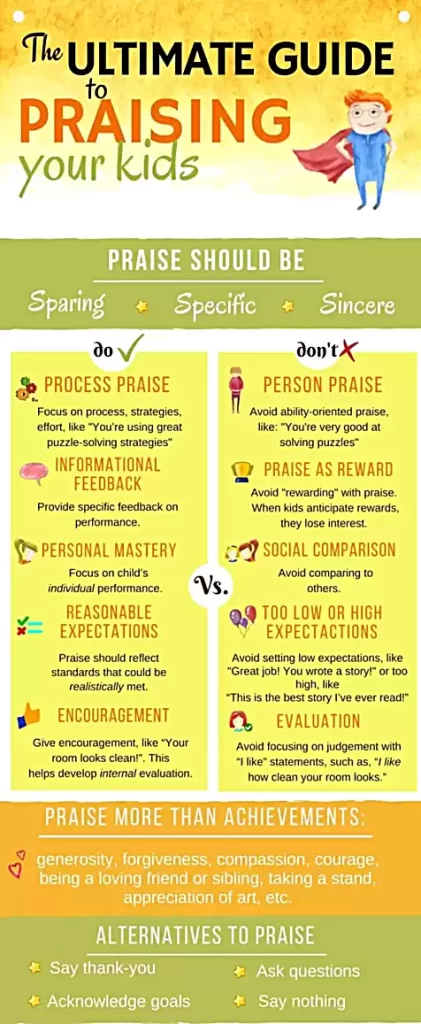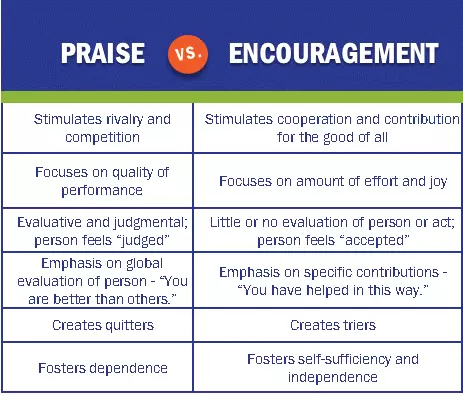PRAISE VS ACKNOWLEDGEMENT

THE PROBLEMS WITH PRAISE
A child comes home from school with an A on her English test.
Parent says, “Good job, you are so smart, let’s put it on the fridge!”
A few weeks later the same child comes home with a D on her science test.
How would the parent respond to this child? “We have a problem. We have to fix this. Maybe we should hire a tutor. What were you thinking? I know you can do better.”
In this light, it’s easy to see the limitations of praise. How do you praise? You don’t. As parents, we inadvertently send the message that we are disappointed and bring the learning process to a halt.
Praise focuses on:
- Perfection rather than progress and improvement.
(Praise trains children to depend on constant feedback regarding what a “great job” they are doing. This dependency shatters rather than builds a child’s self-esteem).
- A right or wrong outcome rather than a meaningful experience.
(Praise trains children to inquire, “Do you like it?” “Did I do a good job?” “Are you proud of me?” “Did I do it right?” Children begin to believe that what others think is more important than what they think about their choices, actions, accomplishments and mistakes)
- Good or bad decisions rather than the decision-making process.

(Praise jeopardizes the child’s ability to develop their own internal compass to guide the decision-making process.)
- Pride or disappointment rather than acceptance and support.
(Praise fractures the relationship between parent and child. Without even realizing it, parents may be using praise as a tool to direct and manipulate the child’s behavior. The message is clear — “I approve of you when you … “and “I do not approve of you when you. … “Living with this kind of constant judgment can damage not only the child’s confidence but also the relationship.)
If you are preoccupied by feeling proud or disappointed, you miss the opportunity to be curious and help the child learn more about himself, his learning style, the situation and what he might do differently the next time. After all, it’s more important that the child know himself than it is for you to pass judgment on his experience.